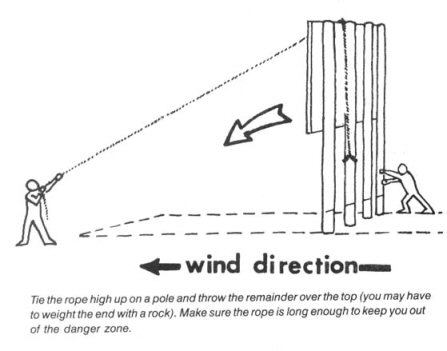“The peasants, living lives which to us seem indolent and shiftless, are invariably carefree and contented; but, if they are to be citizens of an independent self-governing nation, they must acquire…a new set of wants.”
Greenwash inevitably starts with advertising. The image of desire projected into the mind of a seemingly independent human being makes them so much more open to suggestion; the machine has us where it wants us by virtue of just clever words and clever pictures. We are so easily led…or at least we have become so easily led. So, if a corporation wants to appear green it just uses the same tricks it uses all the time, to suggest whatever it wants us to believe. Invariably, it gets what it wants.
Life would be so much more carefree without advertising. The quote at the top of the page was spoken by Arthur Millspaugh, an advisor to the US government in 1929. This was made with reference to the people of Haiti, the country that the USA was occupying then, and now desires to occupy once more. Whether with guns, the promise of aid or those clever words and clever pictures, the people at the top of the chain will do whatever it takes to occupy our minds, our lives and, of course, our wallets.
And who needs guns or aid when you have billboards, ad breaks, in-store advertising, promotions, junk mail, pop-ups…the power of the global marketing machine?
How would you like to help people get their lives back?
No Risk
For someone who wants to move away from a technological existence, it would seem odd for me to promote a particular technology, but this is well answered by Derrick Jensen who defies those who selectively quote Audre Lorde in saying: “the master’s tools will never dismantle the master’s house”. There is no reason at all why certain, effective technologies should not be used in defence of humanity and the wider world, so long as the doctrine of technology as a universal force for good is resisted. You are almost using a web browser to read this. If you are using Internet Explorer, then stop using it and install Firefox instead.
Now you have done that – and wasn’t it easy? – watch the following video, which will explain how to install AdBlock Plus:
Working with the AdBlocked browser might not seem different, but we are surprisingly poor at noticing things that are not there – maybe news sites feel a bit cleaner; pages load a little quicker; you aren’t getting all sorts of messages asking for permission to open this and that. The critical difference is that you are being exposed to far fewer advertisements; and if you do see and advert, all you have to do is right-click (or the Mac equivalent) and select “Adblock Image…”. Click “Add Filter” and you will never see it again.
Unless you are using someone else’s machine, in which case, ask them to install Firefox and AdBlock Plus, and get them to ask all their friends to do the same, and so on. Very quickly, with virtually no risk at all, you have a lot of people who are being brainwashed that bit less. What’s not to like?
Low and Medium Risk

I am genuinely unsure of whether defacing or damaging an advertisement in a public place is a crime or not. Speaking for English Law, which is the jurisdiction under which I am forced to live, if a billboard is operated by a private company then any “negative” action taken against the advertisement is taken against the private company alone. Any prosecution would have to be taken out by that company (ClearChannel, JCDecaux or whatever) upon the individual, and as far as I know, it never has been. That’s why I consider any non-destructive (speaking from a structural point of view) actions that do not directly harm another person to be Low Risk.
However, the comfort factor is important, so there are a number of variables that determine your personal risk, whether real or perceived. First, where and when the action is taking place: in broad daylight in a busy shopping street is bound to get you at least some attention, although this can be mitigated (perversely) by the wearing of a fluorescent yellow tabard, making methodical actions at least seem official. Under cover of dark, next to a place usually only busy during the rush-hour is perfect for avoiding any trouble.
Second, how much you do: rip off a small part of a poster, which is quick and less obvious than a complete removal, and you probably won’t be noticed; as will just a subtle change to a word or image (which can often be more effective) compared to a complete spray-job. I have found, to my delight, that removing a corner of even the largest billboard is often followed up by local teenagers finishing the job for you; similarly, scribble a bit of hair beneath an Immac-ed armpit, and you are inviting even more creative additions.
Thirdly, the nature of the change, if you are not simply removing the advert. There is one thing I personally would avoid, just because I have children, and that’s swearing as part of the defacement, as well as the use of sexual or overtly violent images. The addition below is great fun, but you can see (where I have smudged, just in case kids see this) the problem if it’s near to a school, for instance. Just keep it appropriate – by all means draw in a person crushed by the car on the advert, but avoid drawing a massive penis on a Coke bottle, as much as you would probably like to, if you want to keep it low risk.

The key to these low and medium risk actions, is the physical removal of the message intended by the advertiser. If you can reverse the message, as often portrayed by groups like Adbusters, then that’s great too; but the main thing is the release of people’s minds from the grasp of the corporate system. Just one advert removed from the eyes of a thousand people is a very good thing indeed. And don’t forget, this includes televisions, as featured last month.
High Risk
I’m putting these things under High Risk because whilst being incredibly important, they are almost certainly illegal, and may even pose some kind of direct risk to yourself in executing them. Because of that, I have to issue the following disclaimer:
The author, nor the host of this web site does not condone any actions which break the law under the jurisdiction where the described activity is taking place.
Which, of course, doesn’t mean you shouldn’t do them at your own risk.
An Unsuitablog staffer had a chat with David Lambert of JCDecaux, the largest seller of high-tech billboards in the UK, to discuss their Première range of backlit behemoths, and he was relatively forthcoming on the subject of power sources to their units (listen towards the end):
RECORDING: JCDecaux Premiere Billboard Range (opens in new window)
Obviously if the power were to be removed from these units then the advert would be pretty useless; all those drivers no longer being urged to spend, spend, spend!
For billboards that are rather more inert, particularly the suburban and rural variety, I hand over to the peerless “Ecodefense: A Field Guide To Monkeywrenching” (a mirror of which you will find on the A Matter Of Scale website). In particular, Chapter 8, which deals with the removal of Propaganda:
Propaganda-psychological warfare-has been around ever since the early agricultural cities of the Fertile Crescent began quarreling and pushing each other around. Half of your battle is won when your enemy is afraid of you.
Propaganda is a good way for the monkeywrencher to not only present her message to the public, but also to cause sleepless nights for the black-hearted Freddies, developers, subdividers, gutless politicians, sleazy advertisers, and others. Besides the well-known act of cutting down billboards, other entertaining ideas in this chapter can leave the evil ones sweating and sleepless in their beds.
The relevant section includes details on tools, tactics for avoiding detection, and safety (for yourself and others) – you really don’t want one of these things falling on you!

As well as felling, Ecodefense goes into a great amount of detail about the various types of defacement and revision I have only touched on here. All of this is pretty high risk stuff, but certainly not beyond the ability of smart and careful people.
Whether you just install AdBlock Plus on your computer, remove a sheet of advert from a billboard or do something more permanent, you are giving both yourself and many others back their liberty; indeed, their basic right not to have their thoughts polluted by the desires of other, more nefarious, parties. Advertising is not freedom of speech or expression – it curtails this in favour of a corporate-driven message that defines how we should life our lives.
Now go and break those ads!










